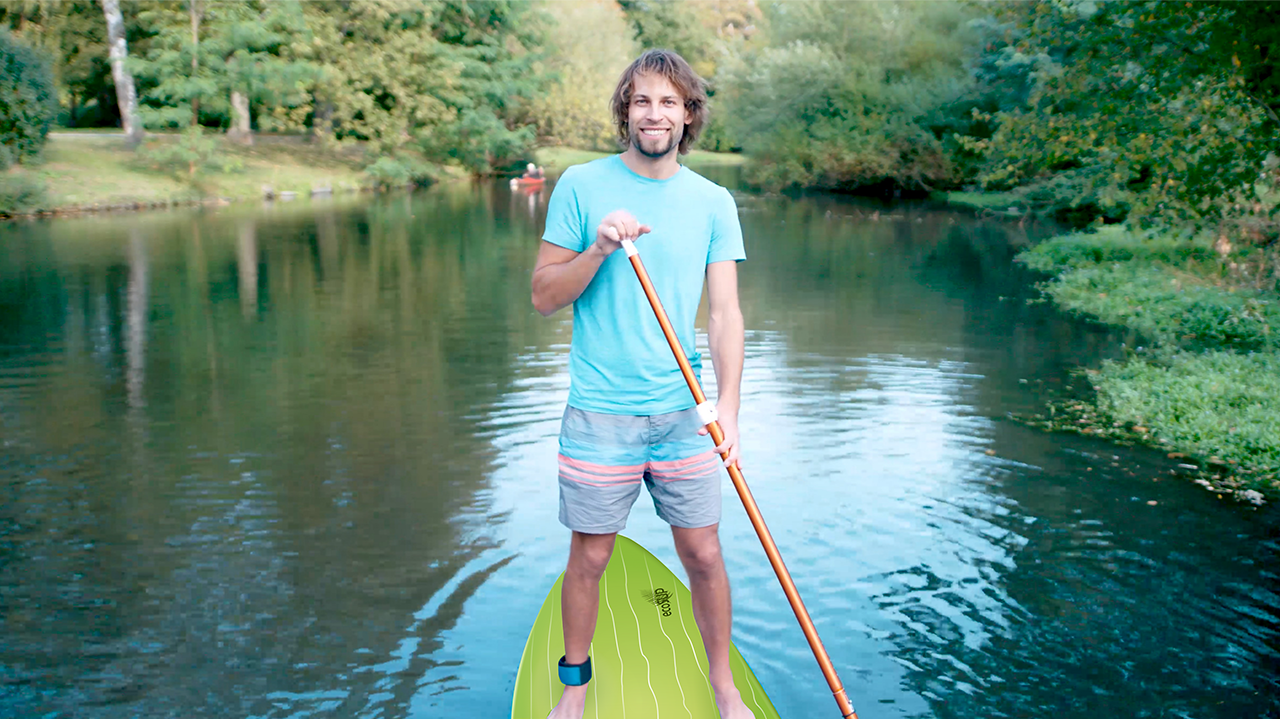Clean-up event on the Oker: Fraunhofer WKI presents bio-based stand-up paddleboard and extends an invitation to clean up the Oker river
On 4th September 2021, the Fraunhofer WKI, in collaboration with Naturfreunde Braunschweig e. V., would like to invite people to take part in a clean-up of the Oker river. Participants can set out on their own or follow one of two routes, each covering a distance of three kilometers, and clear the Oker of trash along the way. The destination is the grounds of the Naturfreunde Braunschweig e. V. at the Südsee lake. Those interested in research will find an information stand there featuring details of the bio-based SUP board “ecoSUP”. Starting at 2:00 p.m., an information event will take place at this location.
On the 4th of September, stand-up paddleboarders and canoeists can participate in the clean-up event with their boards and boats, starting either from one of two meeting points or on their own. The tours will both start at 10:00 a.m. Both will end at the Naturfreunde at the Südsee lake and will last approximately three to four hours. One meeting point is at the highway bridge “Uferstraße” in Braunschweig, and the second meeting point is at the bridge “Friedrich-Ebert-Straße” in Wolfenbüttel.
At the Naturfreunde Braunschweig e. V., an information event will take place from 2:00 to 5:00 pm which will provide background information on the research project. Christoph Pöhler, Project Manager for the research project “ecoSUP”, will be available for questions and discussions. In addition, participants can swap their collected trash for drinks and cake.
Further information regarding the routes and the event can be found here: https://www.hochschulwettbewerb.net/2020/braunschweig2/wp-content/uploads/sites/61/2021/08/FZS_eocSUP_Flyer_cleanUp-Event_2021-08-17.pdf
The “ecoSUP” research project
Together with colleagues at the Fraunhofer WKI, Christoph Pöhler is developing a stand-up paddleboard with a lightweight sandwich element made from renewable raw materials. For the core, balsa wood from discarded wind-energy rotor blades is utilized - a sustainable solution for their high-quality recycling. The outer shell consists of bioplastic reinforced with regionally available flax fibers.
Lightweight materials are environmentally friendly, as lower amounts of energy and raw materials are necessary for transport and production. Conventional lightweight materials are based on fossil and other finite resources such as metals and minerals.
Currently, petroleum-based materials such as epoxy resin, polyester resin, polyurethane, and expanded or extruded polystyrene are used in combination with glass-fiber or carbon-fiber fabrics for the production of watersports equipment, for example surfboards. Plastics reinforced with glass fibers and carbon fibers are also experiencing a continuously growing market in other sectors of the economy. This offers a high savings potential with regard to finite resources.
The »ecoSUP« project was funded by order of the German Federal Ministry of Education and Research (BMBF) via Project Management Jülich (PtJ).
Background of the Fraunhofer WKI
Sustainability through the utilization of renewable raw materials has formed the focus at the Fraunhofer WKI for 75 years. The institute, with locations in Braunschweig, Hanover and Wolfsburg, specializes in process engineering, natural-fiber composites, binders and coatings, wood and emission protection, quality assurance of wood products, material and product testing, recycling procedures and the utilization of organic building materials and wood in construction. Virtually all the procedures and materials resulting from the research activities are applied industrially.
Last modified:
 Fraunhofer Institute for Wood Research
Fraunhofer Institute for Wood Research 